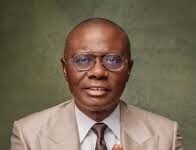The Transmission Company of Nigeria, the backbone of the national power system, is left prostrate by underfunding and vandalism as Nigeria strives to improve its electricity supply.
The ambitions of the Federal Government for grid expansion and national electrification face a medley of challenges threatening the stability of the country’s transmission infrastructure.
The state-owned TCN is currently facing challenges limiting its ability to wheel more power to the masses as ageing infrastructure, vandalism, and funding gaps remain major hindrances to the power sector.
The national transmission grid connects more than 29 generation companies to 12 distribution firms via 330 kV and 132 kV lines. It also links to neighbouring countries, Niger, Togo and the Benin Republic. TCN is the sole manager of this high-voltage network, which serves as the primary conduit for the movement of bulk electricity across Nigeria.
Despite its significance, the grid is in distress, and the various challenges continue to impede optimal performance.
At a recent Senate Committee Retreat in Akwa Ibom, the Managing Director/Chief Executive Officer of TCN, Sule Abdulaziz, laid bare the struggles of the only transmission segment of the country’s power sector, offering a candid insight into the reality facing the nation’s transmission network.
His presentation at the forum revealed a sector grappling with operational paralysis caused by recurring sabotage, obsolete equipment, financial constraints, and regulatory bottlenecks.
Between January and March 2025 alone, Abdulaziz disclosed that over 109 transmission towers were vandalised across Nigeria, crippling supply to several regions. The Port Harcourt region suffered the heaviest blow, with 62 towers brought down in 13 separate incidents. The Enugu, Kano, and Abuja regions were not spared either, recording dozens of damaged structures.
“2024 and 2025 have been the worst years for TCN in terms of transmission line vandalism. A total of 86 towers were vandalised in 2024, 26 of which were completely brought down. In several states, this led to total power blackouts lasting days, even weeks,” he said.
According to him, the absence of strong deterrents and slow judicial responses have emboldened vandals, with TCN now pushing for life imprisonment sentences for convicted offenders.
Even as Nigeria pushes for more generation capacity, TCN’s ageing infrastructure remains a major constraint. The MD noted that several substations still operate with decades-old transformers and control systems. Transmission lines are overloaded, and many are in dire need of reconductoring.
“Ageing grid infrastructure with high losses is not just a technical issue; it is a national security threat,” Abdulaziz noted.
He stated that procurement delays and a painfully slow import clearance process have compounded the problem. He stressed that transmission equipment often gets stuck at the ports for months due to bureaucratic hurdles around Import Duty Exemption Certificates.
Abdulaziz told the Senate Committee that TCN’s financial woes were deepened by the failure of the electricity distribution companies to settle their debts. The MD lamented that several critical projects have stalled due to lack of funds, regretting that many “low-hanging fruit” projects, those nearing completion, remain in limbo as they are not prioritised in DisCo budgets, adding that there are so many investments already tied down with no timelines for completion simply because of funding challenges.
The engineer mentioned that legacy projects awarded more than two decades ago remain unfinished due to chronic underfunding.
![]()










